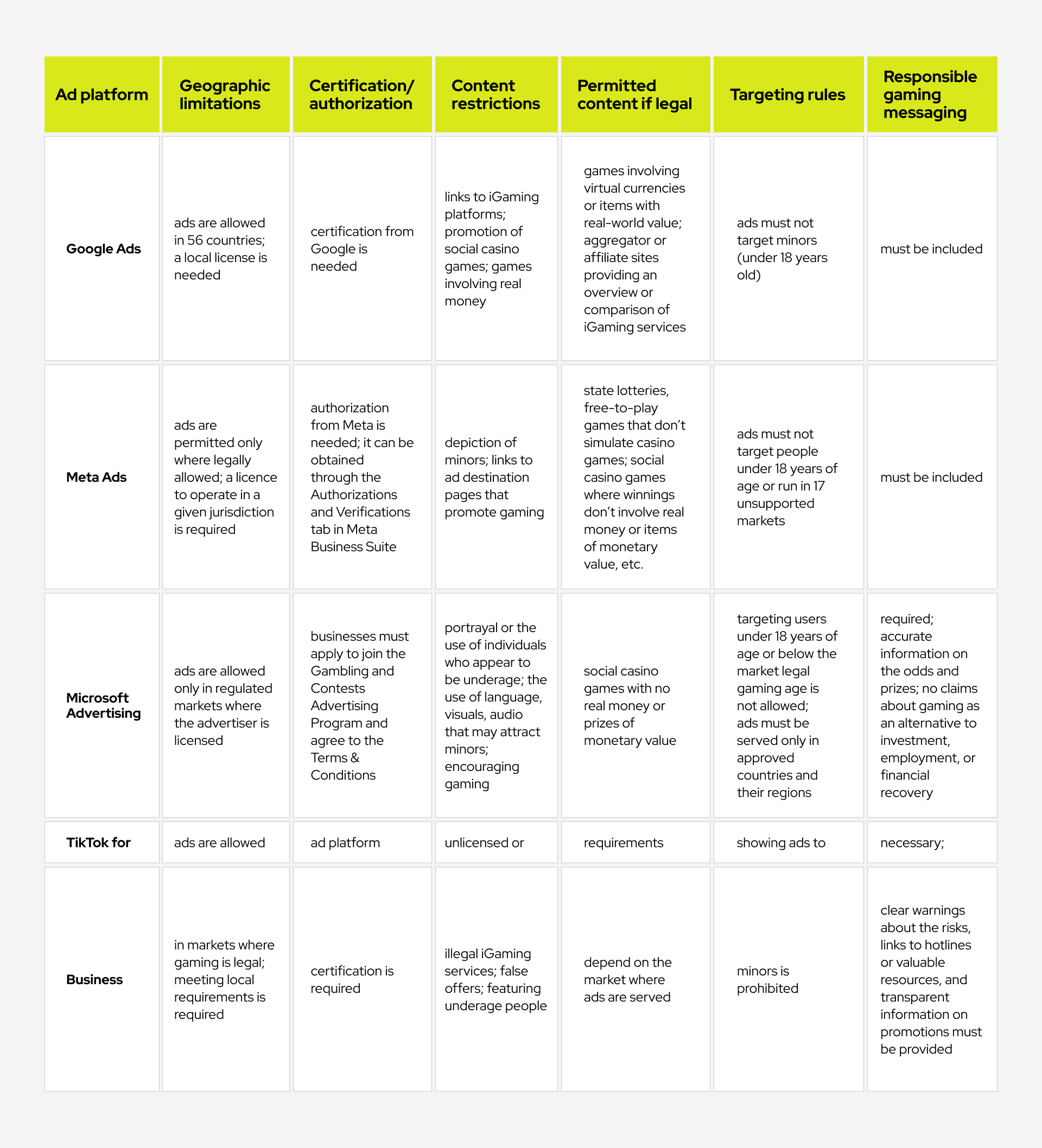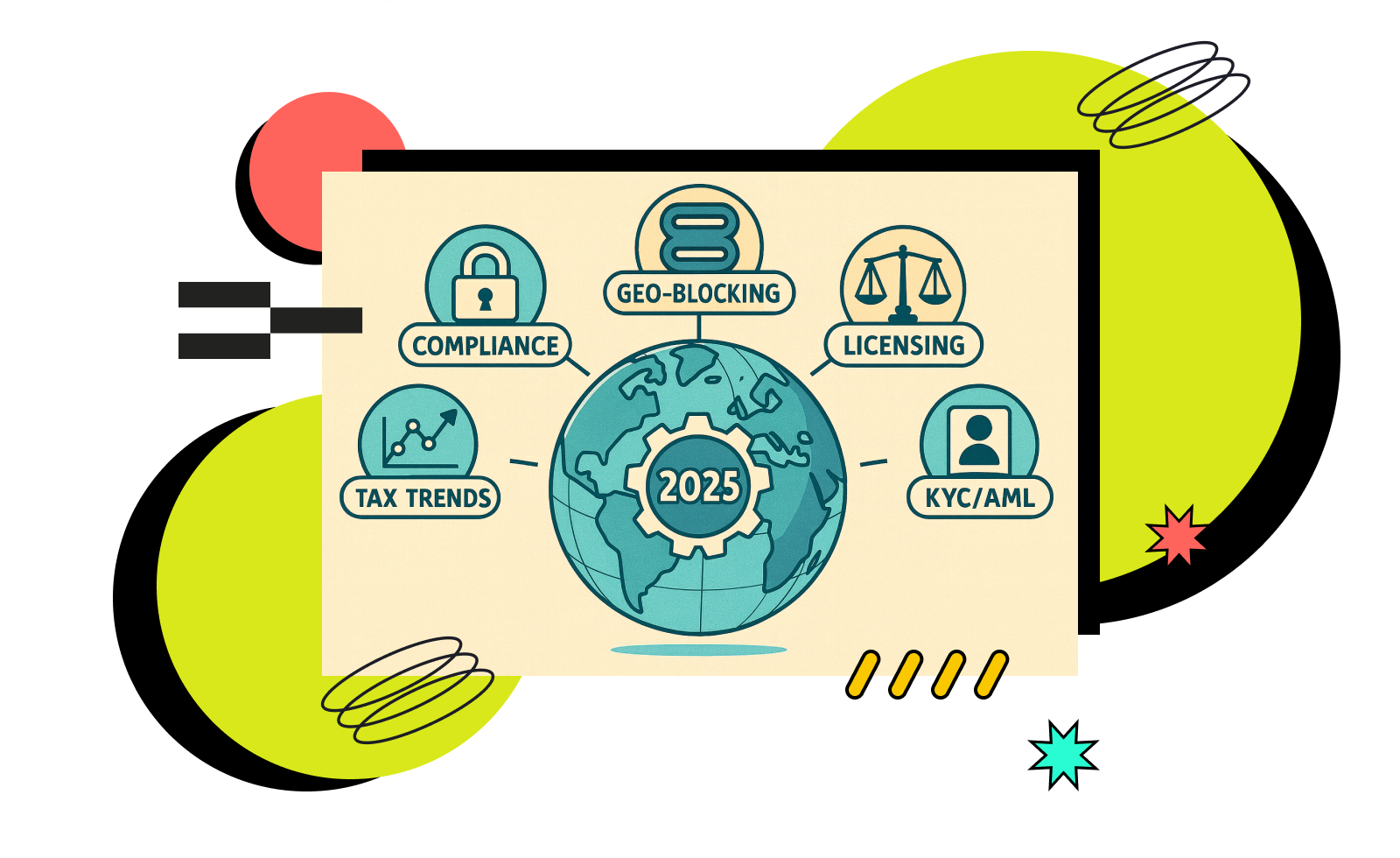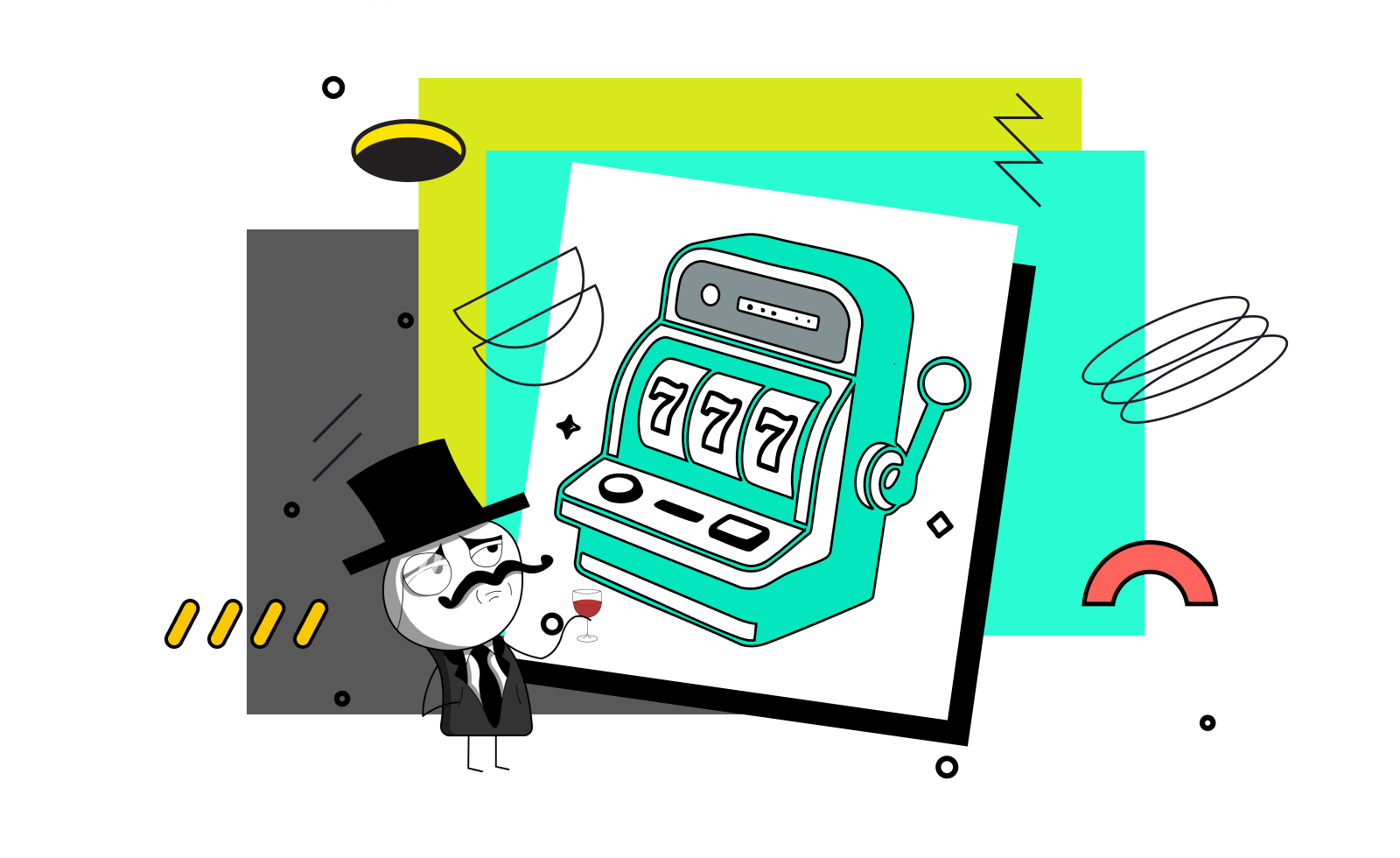Who among marketing folks is the most creative and scrupulous — but not of their own free will? Those working in industries of potentially restricted content, as I call them: adult businesses, tobacco and alcohol manufacturers, dating services, online casinos, etc. Creating a compliant ad campaign is like passing the laser hallway in Resident Evil: one wrong move — and you’re in trouble.
Some might ask, “But Kate, don’t ad policies apply to every type of business? Why be so dramatic?” That’s true, but it's the variety of market-specific rules and exceptions that complicates the process. Marketers must carefully review messaging, adapt creative ads and promotions for different regions, adhere to targeting restrictions, and determine if influencer campaigns are permissible, among other things.
Why do iGaming brands face harsh advertising restrictions, and what are the risks of violating them? What restrictions should marketers add to their checklists, and what legal workarounds can iGaming brands use to promote themselves? We answer these questions in this blog post.
The answer that lies on the surface is that casino games entail staking real money, so the consequences of excessive gambling can lead to financial ruin and emotional distress. The financial risk is perhaps the reason why digital ad platforms tend to restrict ad creatives featuring games involving real money and allow those where people use virtual currencies like Bitcoin (we’ll talk more about it later).
There is a general agreement about the ethical responsibility of governments and iGaming businesses to provide mechanisms that will prevent vulnerable groups, minors, and individuals with mental health issues from becoming addicted to this pastime.
Another significant ethical issue in casino advertising is the potential for misleading consumers by positioning casino gaming as a guaranteed way to make money. Therefore, online casino ads must not glamorize gambling as an easy path to wealth, creating a false sense of security among some.
In response to these concerns, the concept of responsible gaming has emerged. Its goal is to foster healthy gaming habits by educating players about the risks and signs of developing addiction, offering support hotlines, and providing tools such as self-exclusion and timeouts, or setting deposit, betting, and loss limits on iGaming platforms. Including responsible gaming disclaimers in ad creatives is a must these days.
Ad account suspension or ban. Ad platforms don’t tolerate rule breakers and may temporarily or permanently cut off their marketing channels. Google Ads, for instance, suspends ad accounts forever without prior warning for those who don’t meet state and platform requirements on promoting social casino games.
License revocation or suspension. Regulators can revoke or temporarily suspend the gambling license of operators who repeatedly break advertising rules.
Fines by regulators. Financial penalties are the most common form of punishment, varying widely by jurisdiction and the severity of the violation. For example, in 2023, the Netherlands Gaming Authority fined Bingoal €400,000 for targeting young adults, whom the regulator considers a high-risk group.
Criminal charges. In severe or repeated cases, companies or individuals responsible for non-compliant casino advertising may face criminal charges. Imprisonment and asset seizure might be on the menu for bad actors.
The UK’s Gambling Commission is among the entities that keep publicly available registries of actions taken against operators and individuals. Feel free to check it out and learn about missteps and their consequences.
To avoid appearing in such registries and getting the bad PR, it’s essential to carefully research all requirements for running online casino and sportsbook ads for all countries where you plan to promote a brand. These rules include:
State regulations on iGaming advertising typically govern the right to run ads, the content of ad creatives (including text, images, links, etc.), targeting, the use of bonuses, and time restrictions. You can consult a legal team to create a checklist for each jurisdiction to ensure your promo ideas comply with the law.
All ad platforms require brands to get verified or authorized, which involves providing proof of their legality in the target states. Like regulators, they clearly define limitations on what can be promoted and what cannot, and what demographics can be shown ads.
Both state regulators and tech companies emphasize the need to include information about responsible gaming in an ad creative.

The logic is that first, you get the green light from regulators, and then make your way through the compliance forest of ad platforms.
When raising awareness about an iGaming brand and reengaging existing players via ads is outlawed, other effective activities come into play.
Affiliate marketing. Leveraging the affiliates’ audiences to spread the word about your platform and latest promotions is a time-tested strategy. Partners can write game or casino reviews or articles about games or winning strategies and naturally include affiliate links within the content.
Influencer partnerships. This type of advertising works well because people trust influencers as if they were friends. Recommendations from talented influencers don’t feel like sales pitches. Here’s a caveat: ensure influencer endorsements are legal in the target country and review compliance requirements closely if they are. Spain used to ban online casino ads with celebrities until 2024, for instance.
Guest posting. Having company thought leaders write for reputable media can position the brand as a knowledgeable authority in the iGaming world. Just don’t forget to optimize pieces for relevant keywords to improve their visibility in search results.
Community building. Promoting an iGaming brand in communities on platforms like Reddit, Discord, or Telegram can be highly effective due to their interactive and niche nature. Affiliates or brand representatives can create discussion topics and reply to questions. However, it’s crucial to follow each platform’s guidelines and avoid spamming. Users, especially those on Reddit, have little tolerance for openly promotional posts, to say politely.
Advertising in iGaming is clearly no walk in the park. Marketers must unthread a maze of state and platform policies before even setting a task for writers and designers, but those who take the effort to understand the requirements do get the job done.
Moreover, when ads are off the table, other tactics such as affiliate marketing, influencer endorsements, content marketing, and community building on niche sites and messengers come to the rescue.






